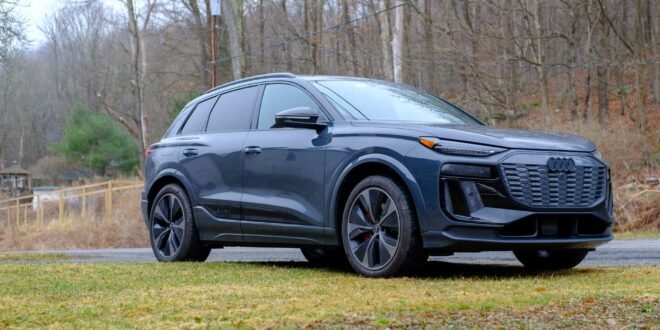Audi’s Electric Vehicle Sales Surge in H1 2025
Audi has seen a significant boost in its electric vehicle (EV) sales during the first half of 2025, with a 32% year-over-year increase. This growth is largely attributed to the success of the Q4 E-Tron and Q6 E-Tron models. Globally, the German automaker delivered 101,000 EVs between January and June, marking a substantial improvement compared to the previous year.
This surge in EV sales stands in contrast to the overall decline in Audi’s total car sales, which fell by 5.9% during the same period. Despite this drop, the company’s EV division is showing strong potential, accounting for 12.8% of the total sales volume. The Q4 E-Tron emerged as the best-selling EV model, with approximately 45,000 units delivered, followed closely by the Q6 E-Tron, which secured around 36,000 customers.
Regional Performance Highlights
In Germany, Audi’s home market, EV sales experienced a remarkable 76% year-over-year increase, with 21,000 units delivered. This success was mirrored across Europe, where EV sales rose by nearly 46%. However, not all regions saw positive results. In the United States and Canada, EV sales declined by 4%, with 12,958 units sold in the first half of the year. China, the world’s largest automotive market, also saw a decrease in EV deliveries, with only 7,897 units sold—a 23% drop from the previous year. Total Audi sales in China fell by 10%, with 288,000 units sold.
Strategic Moves and Challenges
Audi has been actively expanding its EV lineup, introducing new models such as the 2025 Q6 Sportback E-Tron, which offers over 300 miles of range, and the Q3 Plug-In Hybrid, which doubles the electric range of its predecessor. Additionally, the RS E-Tron GT has further solidified Audi’s position in the high-performance electric vehicle segment.
Despite these advancements, the company faces several challenges. The CFO of Audi, Jürgen Rittersberger, highlighted the difficulties the company is encountering, including intense competition, increased US import tariffs, and restructuring costs. He also pointed out that uncertainty surrounding incentives for battery-electric vehicles (BEVs) has affected consumer demand in some markets.
Trade Deal Implications
Audi is currently assessing the impact of a new trade deal between the European Union and the Trump administration, which reduces import tariffs on new vehicles from 27.5% to 15%. This change could potentially ease some of the financial pressures the company is facing.
However, Audi Group does not have any manufacturing plants in the United States. Its sole North American facility is located in Mexico, where it produces the gas-powered Q5 crossover. All EVs intended for the U.S. market are manufactured in Germany, which may affect supply chain dynamics and cost structures.
Future Outlook
As Audi continues its transformation into a leading electric vehicle manufacturer, the company remains focused on overcoming current challenges while capitalizing on the growing demand for sustainable transportation. With new models launching and strategic initiatives in place, Audi aims to maintain its momentum in the EV market and strengthen its global presence.
 Info Malang Raya Its All About World News
Info Malang Raya Its All About World News



